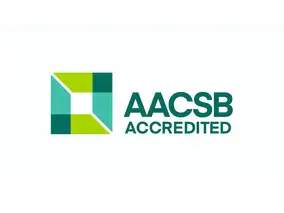Where you can study
International students
International students are not New Zealand citizens or residents.
Specialise in Communication Management for your Bachelor of Communication at Massey
The Bachelor of Communication (Communication Management) gives you insight into how organisations and communities use communication, whatever form it takes. You’ll investigate how factors such as culture, gender and technology influence our ability to connect with others.
You can choose from courses that will re-shape how you understand yourself and your world, including Inter-Cultural Communication and Organisational Communication, as well as developing your skills in writing and presenting across traditional and digital communication platforms. You’ll also have the option of completing a communication internship.
Become a sought-after employee
You’ll emerge with skills that potential employers find very desirable. Communication management shows you how to communicate with diverse groups of people inside various organisational contexts. You'll learn how to communicate with a wide range of people, and write for a range of audiences across different media.
Learn with leaders in the industry
Massey was the first to offer a university-level communication management qualification in New Zealand in 1979. Our teachers are highly regarded internationally. Their teaching blends expert international scholarship with real-world experience, giving you insights into the world of communication and consulting. You will obtain a comprehensive overview of communication management issues and processes.
A Bachelor of Communication in Communication Management is a good fit if you:
- have an interest in communication
- wish to develop your ability to influence and lead
- want to learn more about how communication can shape our social environments for the better.
Planning information
Full-time study in your first year comprises eight 15-credit courses, for a total of 120 credits. We recommend studying 60 credits per semester. You may also wish to take some courses at summer school but ensure you include those that are required for the next level of courses.
Although you are asked to nominate your BC major and minor when enrolling, please be aware that you can change these once you are enrolled.
No course can be credited to a major and a minor.
This major
Completing a major is compulsory. The Communication Management major requires 120 credits including at least 60 credits at 200 level and 60 credits at 300 level.
Minors
Completing a minor is compulsory.
Minors increase the breadth of your degree. They give you extra knowledge, attributes and capabilities.
A Bachelor of Communication (Communication Management) with a minor
The Communication Management major is from the Massey Business School. That means you can choose a minor from the list of majors the College of Humanities and Social Sciences offers:
- Expressive Arts
- International Languages
- Linguistics
- Media Studies, or
- composite Expressive Arts/Media Studies.
A Communication Management minor (for students who are studying a different degree)
If you are not studying a Bachelor of Communication (Communication Management) and wish to complete a minor in Communication Management, see the Bachelor of Communication regulations for requirements.
Official regulations
To understand what you need to study and must complete to graduate read the official rules and regulations for this qualification.
You should read these together with all other relevant Statutes and Regulations of the University including the General Regulations for Undergraduate Degrees, Undergraduate Diplomas, Undergraduate Certificates, Graduate Diplomas and Graduate Certificates.
Returning students
For returning students, there may be changes to the majors and minors available and the courses you need to take. Go to the section called ‘Transitional Provisions’ in the Regulations to find out more.
In some cases the qualification or specialisation you enrolled in may no longer be taking new enrolments, so may not appear on these web pages. To find information on the regulations for these qualifications go to the Massey University Calendar.
Please contact us through the Get advice button on this page if you have any questions.
Courses you can enrol in
Course planning key
- Prerequisites
- Courses that need to be completed before moving onto a course at the next level. For example, a lot of 200-level courses have 100-level prerequisite courses.
- Corequisites
- Courses that must be completed at the same time as another course are known as corequisite courses.
- Restrictions
- Some courses are restricted against each other because their content is similar. This means you can only choose one of the offered courses to study and credit to your qualification.
Core courses for the Bachelor of Communication
As well as the specialisation courses listed below, this qualification has core courses that you will need to complete.
Bachelor of Communication core courses
Communication Management courses
Compulsory courses
Course code: 219206 Communication and Technological Change 15 credits
This course examines the impacts of technology on communication, organizations, and cultures. Students will learn to anticipate change and engage with big problems. Students will also design, create and critique human-centric, ethical solutions to help navigate the complex challenges of the 21st century.
View full course detailsCourse code: 219207 Writing for Public Relations and Digital Media 15 credits
This course develops students’ skills in writing for public relations and relationship management purposes, with particular attention paid to the characteristics and requirements of digital media.
View full course detailsCourse code: 219211 Interpersonal Communication 15 credits
This course examines the importance and practice of building thriving communities and relationships, both in and out of the workplace. Students will examine how communication is used to connect with others, to express and uphold identities, and to manage challenging interactions and relationships.
View full course detailsCourse code: 219303 Organisational Communication 15 credits
This course draws on current research and theory to examine the communication process, and practices in the context of organising.
View full course detailsCourse code: 219304 Intercultural Communication 15 credits
This course compares the communication behaviours of different cultures. Students will develop skills that help them analyse and address intercultural conflicts and issues, and gain skills that allow them to communicate effectively in intercultural contexts.
View full course detailsCourse code: 219345 Strategic Communication 15 credits
This course integrates the theory and application of strategic communication concepts and methods.
View full course detailsCourse code: 156235 Social Media and Digital Marketing 15 credits
A study of the impact, application and evaluation of new digital media marketing strategies and techniques.
View full course detailsCourse code: 219209 Public Relations Practice 15 credits
An introductory study of public relations and its use to create and maintain communication between organisations and their internal and external publics. Theoretical and practical approaches are combined so that students are introduced to the diversity of contemporary public relations theory and techniques and have opportunities to develop key skills in practical assignments.
View full course detailsAt least 15 credits from 300 level courses
Course code: 219311 Communication Internship 15 credits
This course provides students with a period of workplace experience with knowledge of communication concepts and terminology gained throughout their degree, in a series of analytical assessments.
View full course detailsCourse code: 219312 Risk and Crisis Communication 15 credits
This course critically evaluates ways that organisations can manage reputational risk and communicate in response to crisis situations.
View full course detailsEntry requirements
Admission to Massey
All students must meet university entrance requirements to be admitted to the University.
Specific requirements
There are no specific entry requirements for this qualification, outside of university admission regulations.
English language requirements
To study this qualification you must meet Massey University's English language standards.
English language skills
If you need help with your English language skills before you start university, see our English for Academic Purposes (EAP) courses.
Can't meet the entry requirements?
If you need to do a course before you start your qualification, there may be options for you in Summer School.
Fees and scholarships
Fees, student loans and free fees scheme
Your tuition fees may be different depending on the courses you choose. Your exact fees will show once you have chosen your courses.
There will also be some compulsory non-tuition fees and for some courses, there may also be charges for things such as study resources, software, trips and contact workshops.
- Get an estimate of the tuition fees for your qualification
- View a list of non-tuition fees that may be payable
Already know which courses you're going to choose?
You can view fees for the courses that make up your qualification on the course details pages.
Student loans (StudyLink) and Fees Free scheme
You may be eligible for a student loan to help towards paying your fees.
The New Zealand Government offers fees-free tertiary study for eligible domestic students. Find out more about the scheme and your eligibility on the Fees Free website. To use the site's eligibility checking tool, you will need your National Student Number.
Current and returning Massey students can find their National Student Number in the student portal.
- Student loans (StudyLink)
- Fees Free
- Student portal
Fees disclaimer
This information is for estimation purposes only. Actual fees payable will be finalised on confirmation of enrolment. Unless otherwise stated, all fees shown are quoted in New Zealand dollars and include Goods and Services Tax, if any. Before relying on any information on these pages you should also read the University's Disclaimer Notice.
Careers and job opportunities
You may consider becoming an internal communications specialist, a social media adviser, or you may want to take on a consultancy role.
There are plenty of career opportunities in a range of organisations from private companies and government organisations to non-profit.
International students
New Zealand is a great place to study. Massey University’s reputation is supported by our international rankings, accreditations and associations. We are rated five star plus by the QS World University Rankings.
Massey University has small class sizes, and our lecturers and staff are friendly and approachable.
As an international student, there are entry requirements that will apply to you. We recommend that you apply at least three months before your anticipated start date so your application can be processed in time. There are additional steps you will need to take. These include obtaining a visa and travel bookings if your study is to be in New Zealand.
What our students say
“The range of courses that I did opened my mind to a range of career choices and paved my way for pursuing a career in communications. Day to day, I use much of what I learnt at uni, and am continuing to learn even more in my current role.”

Accreditations and rankings

Accrediting Council on Education in Journalism and Mass Communication (ACEJMC)
Massey’s Bachelor of Communication is the only degree outside the Americas and the Middle East to be recognised by the Accrediting Council on Education in Journalism and Mass Communication (ACEJMC).

Association to Advance Collegiate Schools of Business (AACSB)
Massey Business School is rated in the top 5% of global business colleges by AACSB International.

QS Ranking - Communication and Media
Massey is ranked by QS (Quacquarelli Symonds) as one of the top 100 universities for communication and media studies. QS is an organisation that ranks universities worldwide in various topics.

ShanghaiRanking - Communication
Communication at Massey is ranked #1 in New Zealand, and 76th in the world, by ShanghaiRanking.
Related study options
Communication – Master of Business Studies
Massey’s Master of Business Studies (Communication) will give you the business and communication skills to take your career to the next level.
Communication – Master of Management
The Master of Management (Communication) focuses on key skills that will increase your business knowledge, to help move your career in a new direction.
Diploma in Communication – DipC
Massey's Diploma in Communication will introduce you to a selection of disciplines in the communication field.
Expressive Arts and Media Studies – Bachelor of Communication
This unique degree is for those who love being creative, writing and the performing arts, but also want to discover how the media shape our identities and our world.
Useful planning information

Key information for students
Compare qualifications and academic information across different New Zealand institutions. Learn more on careers.govt.nz